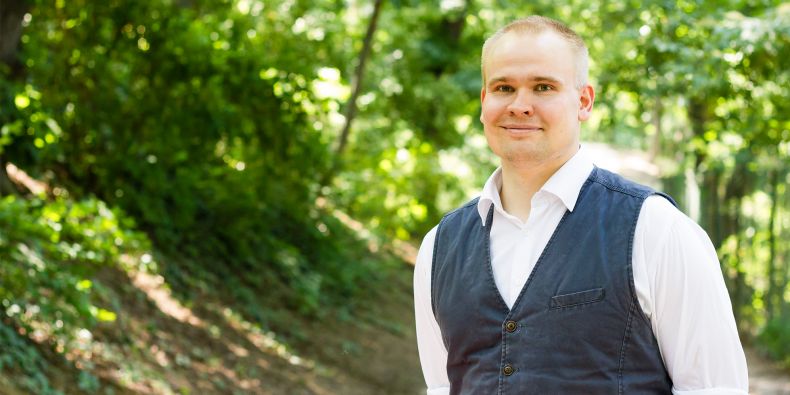When you say Finland, most people think of a country full of lakes, ice hockey, and steaming hot saunas. Valtteri Damski, a Finnish student who came to Brno to study medicine, entered an international presentation competition for foreigners who are learning Czech. The committee liked his presentation on saunas so much that he came in second place.
The young Finnish student began to study Czech five years ago. The main reason why he needs to be fluent in Czech is his hospital training, where he communicates with patients. “Just putting the patient’s medical history together requires interaction between the doctor and the patient, so a med student must have some fluency in the language,” he explains.
Nevertheless, there is enough of a language barrier to create occasional funny situations. “One time, we were examining a young woman, so when putting the case history together, we obviously asked her how many children she had. And even though she had two children, she insisted that she had only given birth once. For a while, my colleagues and I were completely lost, but after a quick brainstorming session, we figured out that she was talking about twins. We didn’t know that word back then,” says Valtteri.
Saunas are in our DNA
Valtteri had been promising his Czech teacher for quite a while that he would enter the competition. “I kept putting it off every year because of my studies, but this year I got stuck in thanks to the topic I chose. My presentation was called ‘The Finnish sauna cleanses you on the inside as well as on the outside’,” explains Valtteri, who comes from Kuopio and considers saunas to be an integral part of Finnish culture. “I believe that the love of saunas is passed on to Finns through their mother’s milk,” he says with a laugh.
The competition took place at the end of the spring semester. “There were two categories of presentations, specialised and general, with a ten-minute time limit for both. My presentation was actually two minutes shorter. I asked the audience questions to gain their attention and even showed them a video on how to use a birch whisk,” describes Valtteri.
One of the members of the committee did not make any comments on his presentation and just awarded points. “I asked her what that meant, and she said that she liked my talk so much that there were no mistakes to point out,” he says, still looking surprised as he recounts the story.
He could not attend the announcement of the winners due to his training in preventive medicine. “I was very happy when I got the text message saying that I had come second. I realised that when you want something, you can achieve it if you try hard enough. The diploma and silver medal I’ve won are the proof,” says Valtteri.
When he finishes his studies next year, Valtteri would like to start his career as a forensic pathologist. “When the police find a dead body in a house and don’t know the cause of death, it will be up to me to examine the body and find clues that, for example, might show it was murder,” says Valtteri about his chosen profession.
